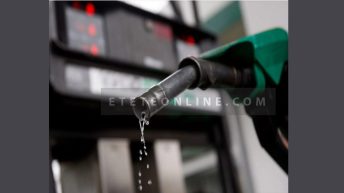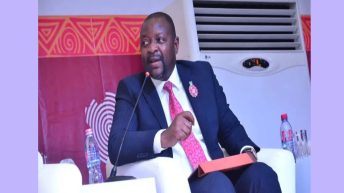The electric power sector in Nigeria has been in shambles for several years. The sector has a capacity of about 12,000 megawatts (MW) but only generates a little over 4,000 MW for a population of more than 200 million. That is significantly lower than about 40,000MW needed to meet household and industrial demands. The consequence of inadequate power generation and distribution has been persistent load shedding and frequent blackouts. An estimated 85 million people are not connected to the electricity grid. Millions of consumers have no meters. Their bills are often arbitrarily estimated and excessive. To make up for the shortfalls in public supply, individuals and business owners have to generate their power through the acquisition of generating sets. Those individuals and businesses involved in private electricity generation spend approximately USD 14 billion yearly to run their generators.
Due to the poor performance and mismanagement of the sector by a state-owned corporation, the government opted for the privatization of the generation and distribution divisions of the corporation. The selection of successful bidders was based on political connections and not competence. The outcome was that the selected companies lacked the financial and technical capacity to discharge their obligations under the contract. The supposedly private companies (DisCos and GenCos) have been depending for much of their survival on government “investments and bailouts”, which have turned out to be a conduit for siphoning public funds by government officials. Despite N11 trillion spent since 1999, Nigeria cannot generate more than 4,000MW, due to corruption at the highest level of government.
Following the frequent failure of the national grid and the massive corruption in Nigeria’s power sector, the Socio-Economic Rights and Accountability Project (SERAP), in March 2022, wrote to former president, Muhammadu Buhari and prevailed on him to “direct the Attorney-General of the Federation and Minister of Justice, Mr. Abubakar Malami, SAN, and appropriate anti-corruption agencies to promptly and thoroughly investigate how over N11 trillion meant to provide regular electricity supply has been allegedly squandered by governments since 1999.” In its letter, SERAP further alleged as follows:
Anyone suspected to be responsible should be prosecuted as appropriate, if there is sufficient admissible evidence, and any missing public funds should be traced and fully recovered.
Nigerians have for far too long been denied justice and the opportunity to get to the bottom of why they continue to pay the price for corruption in the electricity sector – staying in darkness, but still made to pay crazy electricity bills.
The staggering amounts of public funds alleged to have been stolen over the years in the electricity sector have had catastrophic effects on the lives of millions of Nigerians, akin to crimes against humanity against the Nigerian people.
Investigating the allegations of missing N11 trillion in electricity funds, prosecuting suspected perpetrators, and recovering any missing public funds would end a culture of impunity. It would also address the persistent collapse of the electricity grid, and improve access to and affordability of electricity in the country.
The situation will not improve unless you fulfill your campaign promises to probe corruption in the electricity sector, prosecute perpetrators, and recover any missing public funds.
Corruption in the electricity sector and the lack of transparency and accountability in the use of public funds to support the operations of DISCOS have resulted in regular blackouts, electricity grid collapse, and unlawful hike in electricity tariffs.
Corruption in the electricity sector has also continued to disproportionately affect the most disadvantaged and vulnerable sectors of the population who cannot readily afford expensive generators in order to have a reliable power supply.
Your government has constitutional and international obligations to ensure regular and uninterrupted supply of electricity, even in times of resource constraints.
SERAP urges you to urgently implement documented reports of cases of corruption in the electricity sector, and ensure full accountability and restitution.
We would be grateful if the recommended measures are taken within 7 days of the receipt and/or publication of this letter. If we have not heard from you by then, SERAP shall consider appropriate legal actions to compel your government to comply with our request in the public interest.
The failure of successive governments and high-ranking government officials to prevent corruption in the electricity sector and to bring suspected perpetrators to justice is the primary cause of the persistent crisis in the electricity sector, including the exploitation of electricity consumers, and collapse of electricity grid.
SERAP notes that in your inaugural speech on May 29, 2015 you stated that, ‘it is a national shame that an economy of 180 million generates only 4,000MW, and distributes even less. We will not allow this to go on.’ The national grid collapse suggests that this promise remains unfulfilled.
The African Commission on human and Peoples’ Rights has adjudged the failure of the States to provide basic services such as electricity as violating the right to health.
Corrupt officials and corrupt contractors in the electricity sector know very well that their conduct is criminal and injurious, and the denial of human dignity couple with a radical breach of solemn trust, aggravate their alleged crime.
Citizens are frustrated at persistent allegations of corruption in the sector, and the impacts on their human rights. Prosecuting perpetrators would address the grave travesty that has for many years occurred in the power sector.
Impunity for corruption in the electricity sector has for many years forced ordinary Nigerians to stay in darkness, but still made to pay crazy electricity bills.
Successive governments have failed to increase power generation and provide Nigerians with regular and uninterrupted electricity supply, with many electricity contracts shrouded in secrecy, and trillions of Naira going down the drain.
Impunity for corruption in the electricity sector will continues as long as high-ranking public officials go unpunished for their alleged crimes. It is by pursuing these allegations and taking the evidence before the court that the truth will be revealed and justice best served.
The failure by successive governments to tell Nigerians the truth about allegations of corruption in the power sector amounts to a failure to ensure that electricity services are progressively made available, on the basis of equality and non-discrimination.
The details of the missing N11 trillion electricity funds are contained in a SERAP report titled: From Darkness to Darkness: How Nigerians are paying the Price for Corruption in the Electricity Sector.
According to the report, the total estimated financial loss to Nigeria from corruption in the electricity sector starting from the return to democracy in 1999 to date is over N11 trillion. This represents public funds, private equity and social investment in the power sector.
It is estimated that the loss may reach over N20 trillion in the next decade given the rate of Government investment and funding in the power sector amidst dwindling fortune and recurrent revenue shortfalls.
SERAP also urges you to immediately implement the judgment by Justice Chuka Austine Obiozor in suit number FHC/L/CS/105/19 which ordered your government to immediately publish the names of companies and the whereabouts of the contractors paid by governments since 1999 to carry out electricity projects across the country but disappeared with the money without executing any projects.
The enforcement of the judgment could potentially reveal individuals, contractors, and companies allegedly responsible for squandering over N11 trillion meant to provide regular electricity supply under successive governments, lead to the prosecution of suspected perpetrators and recovery of any missing public funds.
The letter to the President also requested him to “refer to the International Criminal Court all unimplemented reports of corruption in the electricity sector gathering dust on the shelves, and to arrest and surrender those named in the reports to the court for prosecution.” Of course, nothing came out of this letter, and rot in the electricity sector continues.
To drive the industrialization agenda of his administration, President Bola Tinubu has to address the myriad of issues plaguing the electricity sector. This is so because the sector is critical to the socio-economic development of the country. Small and medium enterprises (SMEs), which constitute a significant percentage of the informal sector, depend largely on public electricity for the survival of their businesses.
Nigeria is currently hatching an ambitious plan of generating 30,000 MW by 2030. It is doubtful if this plan will materialize, because of the unmitigated corruption in that sector. In this regard, the Tinubu administration must invest heavily in renewable energy, especially solar power. Fossil fuels, namely oil, natural gas, and coal have over the years constituted the major points of supply of electricity power in Nigeria. Individuals and SMEs should be able to afford solar power devices and accessories at cheap and subsidized rates. This will dispense with the traditional challenges associated with the generation, transmission, and distribution of electricity, load shedding, and incessant collapse of the national grid.
Above all, the Tinubu administration has to address issues raised by SERAP in the letter to former president, Muhammadu Buhari, on massive corruption in the electricity sector. Apart from ensuring transparency, probity, and accountability in the sector, the government should take steps to investigate and prosecute individuals and companies culpable for the failure of the sector.





Add comment